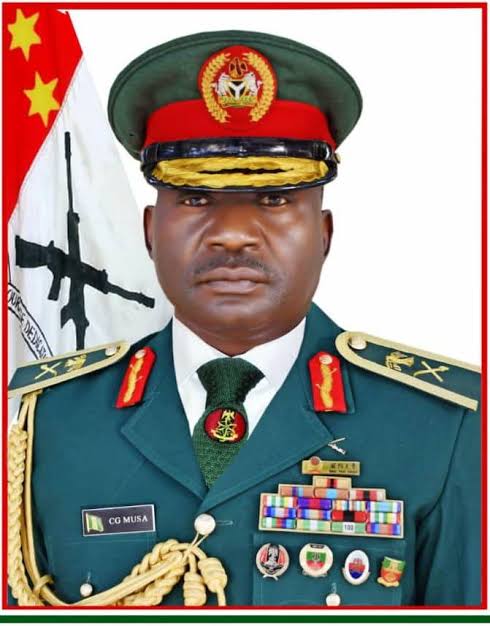In a bold move to address the lingering scourge of terrorism, Nigeria has called on the United Nations to investigate the international networks funding and training Boko Haram insurgents. The plea was made by General Christopher Musa, Nigeria’s Chief of Defence Staff (CDS), during an interview with Al-Jazeera, where he highlighted the alarming endurance of the terrorist group despite years of military efforts to dismantle them.
“Over 120,000 Boko Haram members have surrendered, and most of them came with hard currency,” Musa revealed. “How did they get it? How are they funded? How did they acquire the training and equipment? The UN needs to step in to trace these funds because it’s an international flow, and we don’t have control over that.”
International Conspiracy?
The defence chief did not mince words about his suspicions of an international conspiracy aiding the terrorist group. He questioned the global silence on how Boko Haram has managed to sustain itself for over 15 years.
“We are asking ourselves these questions: Why are we being thrown under the bus when we are just trying to secure our country? Who benefits from destabilizing Nigeria?” Musa asked. “It’s not just Nigeria facing this asymmetric warfare. If unchecked, it will spread across West Africa and beyond.”
Boko Haram’s resilience, he suggested, could be linked to external influences, citing the difficulty the Nigerian military faces in acquiring essential equipment despite having the funds to purchase them. “Even with our monies, we find it difficult to get equipment. Why?” Musa lamented.
The Drone Threat
The recent call to the UN follows reports that Boko Haram and the Islamic State’s West Africa Province (ISWAP) have begun deploying drones for surveillance. This technological advancement poses a new challenge to Nigeria’s military, which has already been grappling with the group’s guerilla tactics.
Daily Trust reports that these drones are used to monitor security forces’ movements before launching surprise attacks, further complicating counter-insurgency operations.
An Expert’s Perspective
Chukwuma Ume, a security sector reform expert, believes the Nigerian government must formally request the UN’s intervention to investigate the funding of Boko Haram.
“When a country faces man-made crises or natural disasters, seeking international support, capacity, and intelligence is not uncommon,” Ume told Daily Trust. “The UN will need to see demonstrable efforts from Nigeria in areas like human rights compliance and good governance to encourage their intervention.”
Ume emphasized that a formal application to the UN would not only bring transparency but also strengthen Nigeria’s international credibility in the fight against terrorism. “The CDS’s call is commendable, but it must be matched with concrete action,” he added.
Borno’s Bloodshed: Soldiers and Terrorists Clash
While the debate over Boko Haram’s funding rages on, the Nigerian military continues to confront the insurgents on the battlefield. Last Saturday, a daring attack by ISWAP terrorists on a Forward Operating Base in Sabon Gari, Damboa Local Government Area of Borno State, left six soldiers dead. However, the military’s counter-offensive resulted in the elimination of 34 terrorists.
Major-General Edward Buba, Director of Defence Media Operations, confirmed the casualties and detailed the operation. “The terrorists attempted to surprise the troops but were met with fierce resistance,” he stated. “Reinforcements, including the Civilian Joint Taskforce and vigilantes, arrived to overpower the insurgents. The air component of Operation HADIN KAI also conducted interdiction strikes on the fleeing terrorists, killing several of them.”
Weapons recovered from the scene included 23 AK-47 rifles, over 200 rounds of ammunition, and other materials. Tragically, six military personnel paid the ultimate price, a fact Buba urged the public and media to handle with sensitivity.
“Please respect the process of notifying their next of kin before disclosing their identities,” he appealed.
A Regional and Global Challenge
Boko Haram’s insurgency, which began in 2009, has claimed tens of thousands of lives and displaced millions in Nigeria and neighboring countries. Despite significant military successes, the group’s ability to regroup and launch attacks has raised questions about its external support systems.
Experts point to the Sahel region’s instability as a contributing factor. The porous borders and lack of coordinated regional efforts have allowed terrorist groups to thrive. General Musa highlighted this in his remarks, warning that without global action, the crisis could escalate beyond Africa.
Global Community’s Role
Nigeria’s call to the UN aligns with global efforts to counter terrorism financing. The Financial Action Task Force (FATF) has identified loopholes in international financial systems that enable the flow of funds to terrorist organizations. By involving the UN, Nigeria hopes to leverage global mechanisms to trace and block these financial channels.
However, critics argue that Nigeria must first address internal challenges such as corruption and human rights abuses, which undermine its credibility. Human rights organizations have accused the Nigerian military of extrajudicial killings and other violations in its counter-insurgency operations. These allegations could complicate efforts to garner international support.

